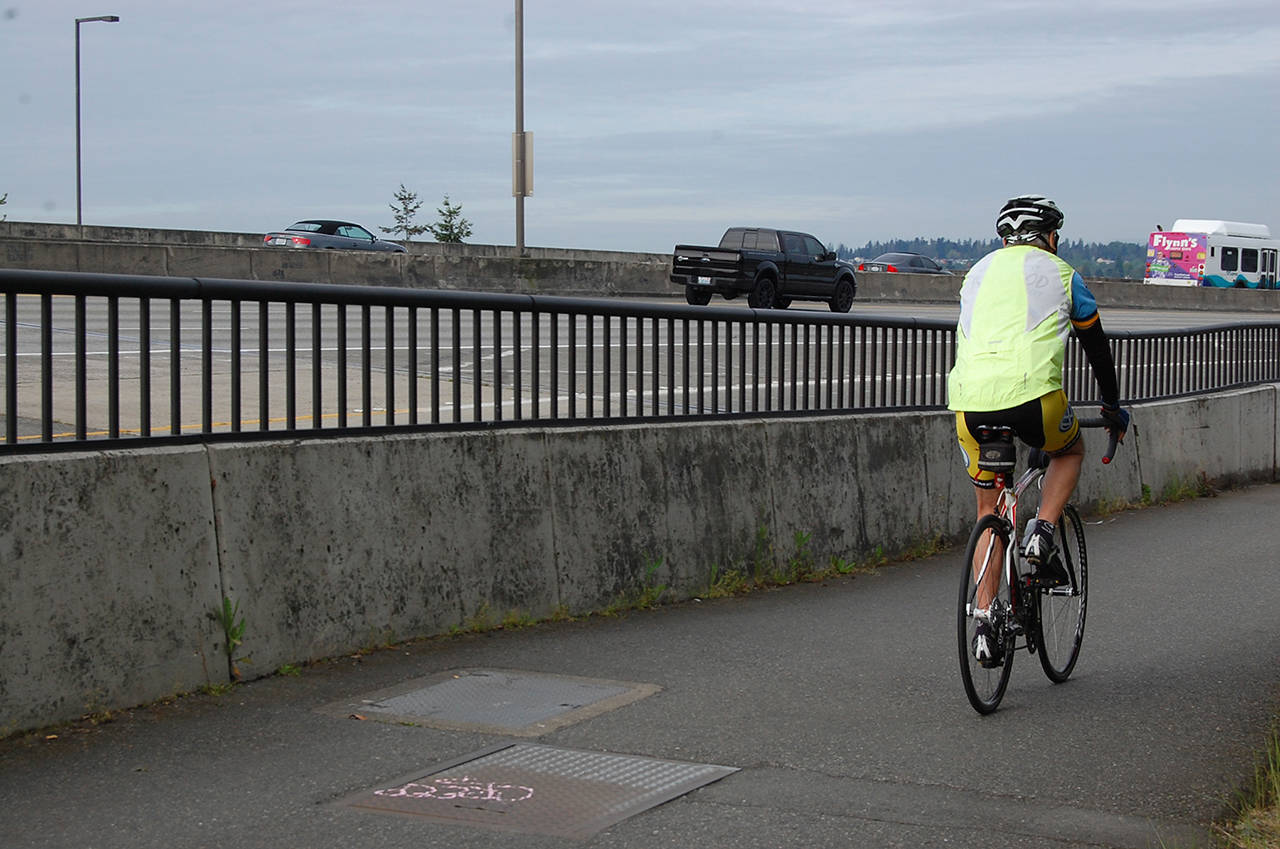The Mercer Island City Council entered into a lengthy conversation about trees, autonomous vehicles, bike routes and more as it held a public hearing and first reading of the city’s 2019-2024 Transportation Improvement Program (TIP) on May 1.
The six-year TIP is a planning tool used to identify specific projects that work together to maintain, preserve and maximize use of the existing roadway and trail systems. State law requires cities to adopt a TIP annually and submit it by July 1.
In 2019-2020, most of the TIP money — the majority of which comes from real estate excise tax, or REET — will be spent on the residential streets preservation program, arterial street improvements and transportation operations, maintenance and capital management. Other categories of the plan include Town Center street reconstruction, pedestrian and bike facilities and East Link traffic safety mitigation projects.
Council member Tom Acker noted that some of the projects in the TIP seemed “piecemeal,” and that he would like to see the city undertake a transportation master planning process. City Manager Julie Underwood said she proposed a similar idea, at a price tag of $300,000, but it did not receive council support. The funding was pared down to $50,000 to address the impacts of the Interstate 90 center roadway closure.
Other council members agreed that major transportation changes are coming to the region, from light rail to self-driving cars, but that the TIP was not the right forum to address that. Mayor Debbie Bertlin suggested that the council host a series of “mobility futures” study sessions.
The major points of contention in the current draft TIP were a Town Center sidewalk resurfacing project and a new Pedestrian-Bicycle Facility (PBF) plan, which was last updated in 2010.
During the public hearing, members of the community group Neighbors in Motion (NIM), appealed to the council to fund a north-south bike route to help people get to the Town Center and light rail station, and plan for the coming of e-bikes. Council member Bruce Bassett suggested that the timing was not right to pursue the PBF plan update, and proposed that the funding be reallocated to other projects, or used as a placeholder.
City engineer Patrick Yamashita noted that the TIP is dynamic, and is updated every year to accommodate and flex to the city’s transportation needs. He said that the priority for this plan is to reinvest in existing infrastructure first, and then fund new projects related to capacity and safety.
The Town Center project addresses safety, said Public Works Director Jason Kintner, as there are places where “trees are winning the battle” with city sidewalks. The project would remove and replace existing damaged sidewalks and the street trees within them with a new design that will allow for trees to grow and mature without damaging the new sidewalks. Council members asked if they could revisit the project as it progresses, due to their commitment to tree canopy preservation.
Acker noted that the city also has a transportation concurrency ordinance on its work plan, which could affect levels of service in the Town Center.
Bertlin asked if some of the Sound Transit settlement money could be used to supplement the city’s staffing levels as it navigates through all of these transportation issues, including East Link mitigation and safety improvements not just near the future light rail station, but also on West Mercer Way. The police department requested that speed feedback signing near West Mercer Elementary on Southeast 40th Street and on West Mercer Way be included in the TIP.
The work proposed for identified East Link mitigation projects in the draft TIP totals about $3 million, leaving about $2 million for improving last mile solutions or Aubrey Davis Park. Per the terms of the settlement agreement, projects must be complete and submitted for reimbursement by December 2025, though Bassett said he’s had conversations with Sound Transit board members about extending that deadline.
Underwood suggested that the council continue the discussion at its mini planning session in June.
See www.mercergov.org for more.


